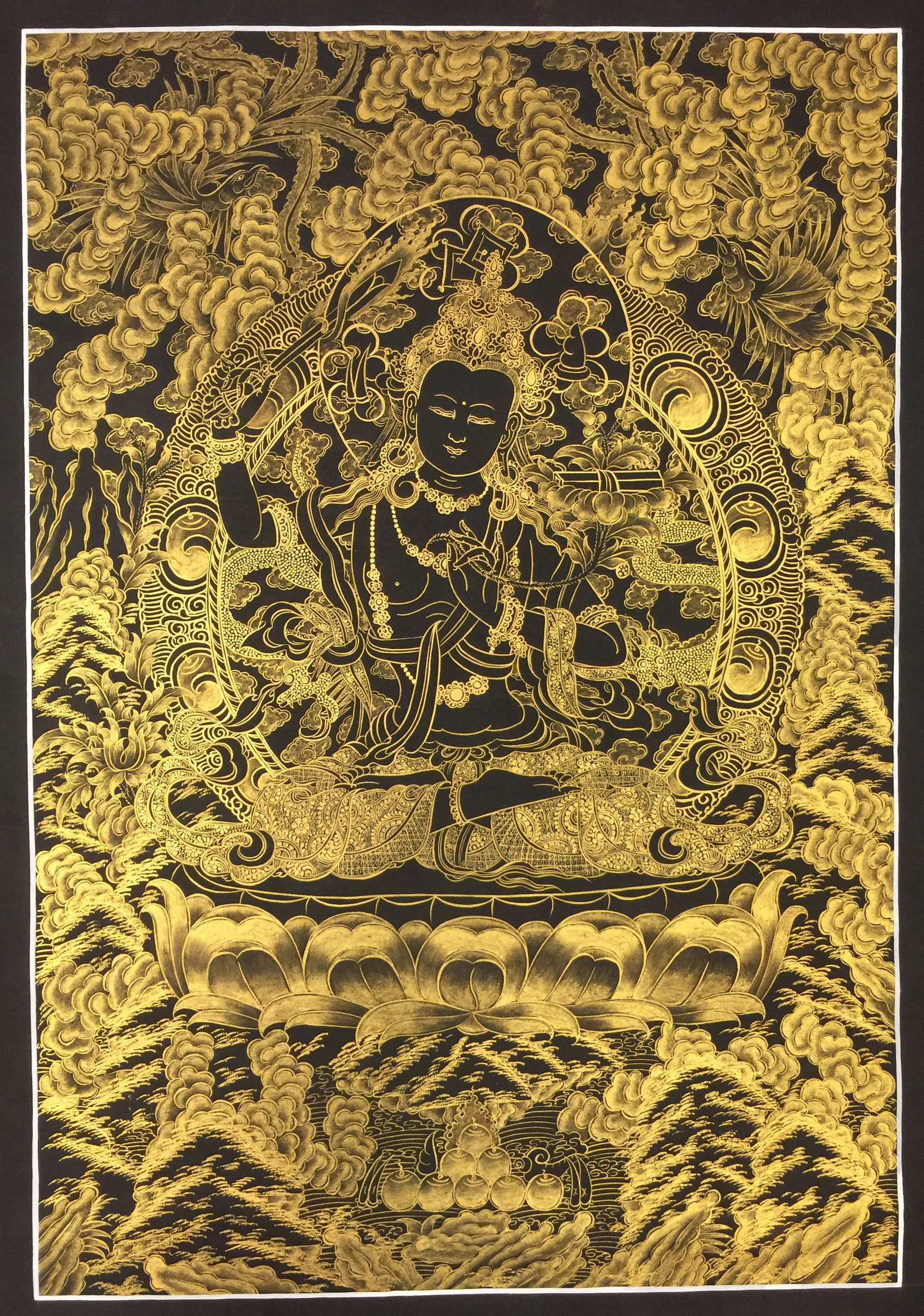

Lokeshvara with Amitabha Buddha
Lokeshvara with Amitabha Buddha is handpainted on cotton canvas by a Thangka artist from Nepal. The images of Amoghpasa can be found in Java, China, and Japan. Lokeshvara is a multi-armed form of Avalokiteshvara that seems to have been popular in Nepal since the Middle ages. The name suggests that he is the lord of the world with infallible noose which leads suffering sentient beings to enlightenment.
Lokeshvara presented at the center of the thangka. Amitabha Buddha is presented at the top of the Lokeshvara in the thangka.
Iconography of Lokeshvara
Lokeshvara is the mystery in the center of the world lotus. All his limbs are white. He has one face and wears the saffron dress.
He is wearing an antelope skin symbolizing that he is extremely compassionate to suffering sentient beings. He has eight hands, the right showing the gesture of fearlessness and the boon granting gesture. He is holding the noose and the string of beads, the left holding a trident, a scripture, a white lotus, and a water pot.
Iconography of Amitabha buddha
Amitabha Buddha is presented at the top of the Lokeshvara in the thangka. Amitabha is head of the Lotus Family, one of the oldest & significant of the Five Buddha Families. This family represents love, purity, compassion & peace. Amitabha Purelandis a place of infinite bliss & boundless light.
Amitabha Buddha is also one of the five Tathagatas representing the wisdoAmitabha Buddha is also one of the five Tathagatas representing the wisdom of discriminating awareness. Amitabha Buddha is red in color. He is represented in the stupa facing to the west. He rides on a peacock symbolizing that he can take away the suffering of others just as the peacock eats poisonous plants and yet his tail shines forth.
Mantra of Amitabha Buddha
The mantra of Amitabha Buddha is Om ami dewa hr.










